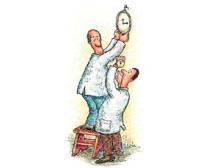LATEST HEADLINES
A little aspirin may prevent bowel cancer
IN BRIEF: 10:00 26 September 2010 | 1 comment
Small doses of aspirin may be as effective as higher doses at preventing bowel cancer, with less risk of side effects
Kilimanjaro's vanishing ice due to tree-felling
IN BRIEF: 10:00 25 September 2010 | 3 comments
Local deforestation could partly explain why the ice cap on Africa's highest peak is vanishing fast
Today on New Scientist: 24 September 2010
18:00 24 September 2010
All today's stories on newscientist.com at a glance, including: crunch time for the Gulf oyster fisheries, spotting organ transplant rejection, and how to get older with a ladder
Aurora saturnalis: halos at the poles of the ringed planet
15:50 24 September 2010
Saturn was already the solar system's undisputed lord of the rings. Now newly processed images from the Cassini spacecraft are revealing previously unseen halos above the planet's poles
Out-of-this-world proposal for solar wind power
14:00 24 September 2010 | 12 comments
The world's energy needs could be met 100 billion times over using a satellite to harness the solar wind – but only if we can figure out how to focus
Courgettes, judo throws and bear attacks on humans
13:13 24 September 2010
As the story of a Montana woman throwing a courgette at a grizzly shows, bear stories capture the public imagination, says Rowan Hooper
Blood test identifies organ transplant rejection
13:05 24 September 2010
A simple blood test could buy time to treat transplant rejection before the organ is damaged
More than 4 million barrels of oil entered Gulf
12:34 24 September 2010
First independent study shows US government got their sums right with estimate of 4.1 million barrels of oil
What's not to love about baby seahorses?
18:10 23 September 2010
Almost a thousand baby seahorses were born in London this week, but in the wild it's a different story
Today on New Scientist: 23 September 2010
18:00 23 September 2010
All today's stories on newscientist.com, including: therapy in Second Life, the horniest vegetarian dinosaur and the wind farms make like a fish























